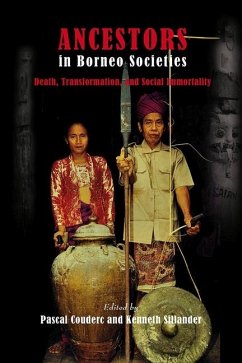While death, eschatology and exotic indigenous deathways have long held a privileged position in the ethnographic and popular literature on Borneo, ancestors have remained a strangely neglected topic. This volume fills this lacuna by presenting a collection of essays on ancestors in Borneo societies written by anthropologists with extensive experience in the field and drawing on new scholarship in kinship and animism studies. Belying the unimportance of ancestors in the literature, the essays document a complex significance of ancestors in Borneo religion and social life. Ancestors appear in a variety of manifestations and contexts, including as guests or distant beneficiaries of offerings in mortuary and community rituals, as village guardians and personal protecting spirits, as assistants in curing rituals and warfare, as unsolicited visitors in dreams and involuntary possession, and as sources of political authority, cultural legitimacy, and collective identity in public discourse. The pattern of relating to ancestors that emerges from this close collaborative effort differs from classic ethnographic representations of ancestor worship based on Sino-African material, and broadens the theoretical and comparative understanding of the subject. Exploring at depth complex questions about the constitution of ancestorship and how ancestral status is established - and the role in this regard of death, kinship, prowess, morality and ritual - this volume will not just be of interest to regional specialists but also will enrich the general anthropological theory of ancestors, kinship and religion.
Bitte wählen Sie Ihr Anliegen aus.
Rechnungen
Retourenschein anfordern
Bestellstatus
Storno

